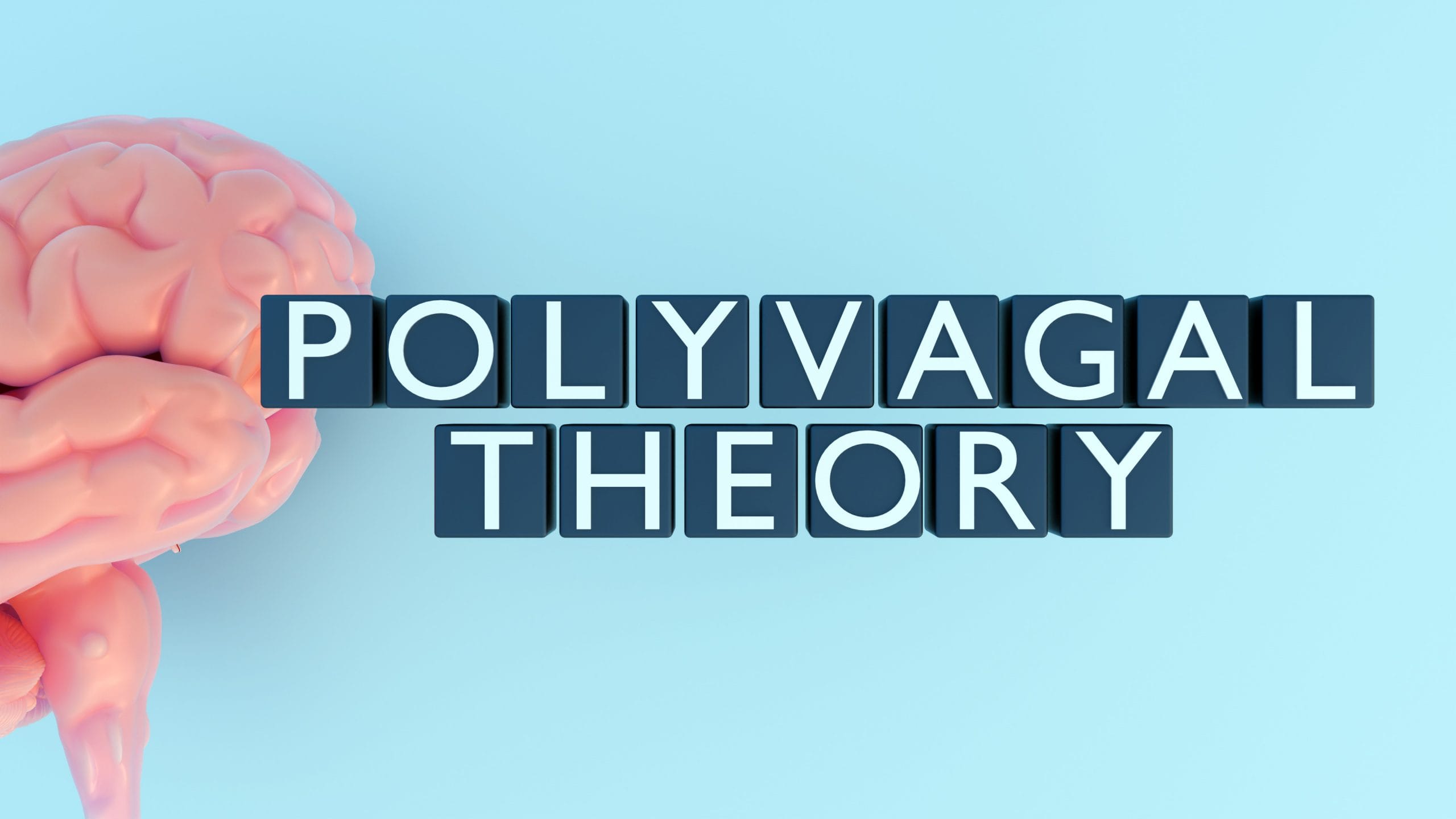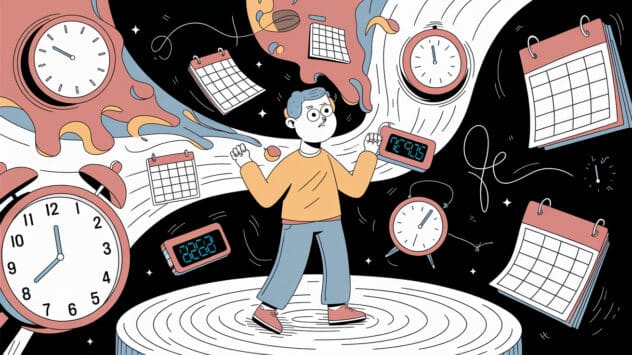
What is Polyvagal Therapy?
ADHD and neurodivergent individuals often face challenges with stress, focus, and emotional regulation. A holistic, natural approach to managing these symptoms is gaining traction: Polyvagal Therapy. This method works by engaging the body’s vagus nerve to support emotional regulation, stress relief, and improved cognitive focus without relying on traditional stimulants. Polyvagal Therapy for ADHD offers a natural way to improve focus and calm, addressing core symptoms without traditional medications.
Polyvagal Therapy is rooted in the Polyvagal Theory, introduced by Dr. Stephen Porges. This theory explains how the autonomic nervous system, particularly the vagus nerve, influences emotional and psychological states. The vagus nerve is like the communication highway between the brain and the body, impacting mood, stress responses, and overall emotional health. By stimulating the vagus nerve through various techniques, Polyvagal Therapy aims to promote a state of calm, safety, and focus. For those with ADHD, activating the vagus nerve can help manage hyperactivity, impulsivity, and emotional dysregulation. It’s about shifting the body from a state of ‘fight-or-flight’ to a place of calm and grounded focus, supporting better cognitive function in a natural way.
How Polyvagal Therapy Symptoms Works
Polyvagal Therapy helps regulate the nervous system, which is often overstimulated in ADHD individuals. Techniques that engage the vagus nerve, like deep breathing, meditation, and mindfulness, create a parasympathetic state. This state calms the mind and enhances focus, allowing individuals to better manage ADHD symptoms.
Unlock peak brain performance with science-backed biohacks. Join free now & get your guide for just £4.99 (45% off)!

Understanding the Science Behind Polyvagal Therapy
Polyvagal Therapy focuses on shifting between three states:
- Sympathetic Nervous System Activation: The ‘fight-or-flight’ mode. Often, those with ADHD are stuck here, leading to heightened anxiety, restlessness, and impulsive reactions.
- Dorsal Vagal State: The ‘shutdown’ or freeze mode, where stress overwhelms and motivation drops.
- Ventral Vagal State: The ideal, calm state of social engagement, focus, and well-being. This is where Polyvagal Therapy aims to guide individuals.
The Benefits of Polyvagal Therapy for all Neurodivergence
Polyvagal Therapy offers a gentle, non-invasive way to manage ADHD symptoms by improving emotional regulation and enhancing focus. The therapy’s benefits extend to neurodivergent individuals, such as those with autism, who also face challenges with sensory overload and anxiety. By engaging the vagus nerve, you promote better mood stability, reduce anxiety, and increase the ability to focus on daily tasks.
Techniques to Implement Polyvagal Therapy
Polyvagal Therapy doesn’t require fancy tools, though many techniques can be easily integrated into daily life. Here are practical, effective strategies to stimulate the vagus nerve for a calm, focused state:
1. Deep Breathing Exercises
Deep, slow breathing activates the vagus nerve and helps you transition from a ‘fight-or-flight’ state to a more relaxed, engaged one. Techniques like diaphragmatic breathing can immediately calm an anxious mind, making it easier to concentrate.
- Practice: Try the 4-7-8 breathing technique inhale for 4 seconds, hold for 7 seconds, exhale slowly for 8 seconds.
2. Mindfulness and Meditation
Mindfulness practices, such as meditation or grounding exercises, can reduce overstimulation and improve focus. These techniques not only engage the vagus nerve but also support serotonin balance, enhancing mood and emotional regulation.
- Practice: Spend 5 minutes focusing on your breath or noticing the sensations around you.
3. Cold Exposure
Applying cold to the face or neck, like with a splash of cold water, can activate the vagus nerve, leading to a calming effect. This simple hack can be particularly helpful during moments of overwhelm or stress.
- Practice: Try a 30-second cold shower or hold a cold compress against your forehead for instant calming. Or better still, immerse yourself in an ice bath. Yeah, we did just say that.
4. Vocal Exercises
Humming, singing, or chanting stimulates the vagus nerve by engaging muscles in the throat. This type of stimulation can help ease anxiety, improve mood, and provide a sense of calm focus, making it easier to navigate daily ADHD challenges.
- Practice: Hum softly for 2-3 minutes, focusing on the vibration in your throat.
5. Gentle Yoga or Stretching
Yoga, particularly poses that involve deep breathing and stretching, can support the ventral vagal state, promoting a feeling of safety and relaxation. This can help ADHD individuals to calm their minds and enhance cognitive clarity.
- Practice: Engage in light yoga for 15-20 minutes daily. Consider poses like Child’s Pose or Cat-Cow stretches.
Integrating Polyvagal Therapy with Other ADHD Management Strategies
Polyvagal Therapy is just one piece of the ADHD management puzzle. Combining it with other holistic approaches can amplify the benefits:
Dietary Changes
Consider nutrient-dense foods that support neurotransmitter balance. Omega-3 rich foods like salmon and chia seeds can help stabilize mood and enhance cognitive function.
Regular Physical Activity
Exercise can boost dopamine and serotonin levels, which are crucial for focus and emotional stability. A simple daily walk or a brief jog can make a difference.
Adequate Sleep
Sleep plays a vital role in maintaining emotional and cognitive health. Establishing a regular bedtime routine, alongside practices like deep breathing, can ensure better rest and improved focus the next day.
Potential Considerations and Risks of Polyvagal Therapy
While Polyvagal Therapy is generally safe, it’s always advisable to consult with a healthcare provider before making any significant changes to your routine, particularly if you’re already using prescribed treatments for ADHD. Some techniques might not suit everyone, so it’s crucial to listen to your body’s responses and adapt accordingly.
Note: The content provided is for informational purposes only and should not replace professional medical advice. Always consult a qualified healthcare provider before making changes to your treatment plan.
Embracing a Natural Path to Calm and Focus
Polyvagal Therapy offers a promising, natural approach for managing ADHD symptoms. By engaging the body’s innate ability to self-regulate through the vagus nerve, individuals can experience improved emotional balance and sharper focus without the reliance on traditional medications. Small, consistent changes—like deep breathing, mindfulness, and vocal exercises—can create a ripple effect, leading to more significant improvements over time. By integrating these practices into your daily routine, you’ll be on your way to a calmer, more focused life.
For those who want to explore more, don’t hesitate to consult experts or join supportive communities to learn how to tailor these techniques for your needs. Why not join ours?






